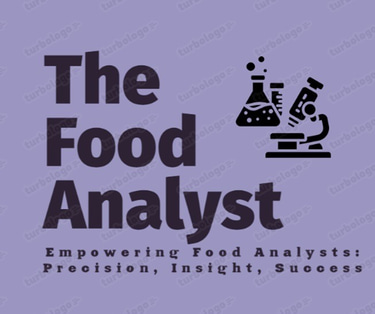"Empowering food analysts and laboratory professionals with expert insights, ISO 17025 resources, regulatory updates, industry testing requirements, training, and career opportunities for excellence in food testing."
Reference Materials and Certified Reference Materials in Food Testing
This article significance of Reference Materials (RM) and Certified Reference Materials (CRM) in food testing. Understanding RM and CRM ensures accurate calibration, quality control, and regulatory compliance in laboratories, ultimately enhancing food safety and analytical reliability.
ISO 17025
3/11/20252 min read
Reference Materials and Certified Reference Materials in Food Testing
Ensuring the accuracy and reliability of food testing is crucial in maintaining food safety standards. One of the essential components in analytical testing is the use of Reference Materials (RM) and Certified Reference Materials (CRM).
What Are Reference Materials (RM)?
Reference Materials (RM) are substances that have been characterized by a metrologically valid procedure for one or more specified properties. They are used to ensure measurement accuracy and consistency in laboratories. These materials play a critical role in:
Calibration of Measurement Systems – Ensuring that laboratory instruments provide accurate readings.
Assessment of Measurement Procedures – Validating and verifying the accuracy of a given method.
Assigning Values to Other Materials – Establishing known values for use in comparative testing.
Quality Control – Maintaining consistency in laboratory processes.
Certified Reference Materials (CRM)
Certified Reference Materials (CRM) are a subset of RM that undergo rigorous characterization and are issued with a certificate detailing their property values, uncertainty levels, and metrological traceability.
The production of CRMs must adhere to ISO 17034, the international standard specifying the general requirements for the competence of reference material producers. This ensures that CRMs are sufficiently homogeneous, stable, and fit for their intended measurement use.
Mandatory Contents of an RM Certificate
For laboratories to ensure compliance and traceability, an RM certificate must include specific details.
Title of the Document – Clearly defining the type of material.
Unique Identifier of the RM – Ensuring traceability and uniqueness.
Name and Contact Details of the RM Producer – Providing source credibility.
Intended Use – Specifying its application in testing.
Minimum Sample Size (if applicable) – Ensuring proper usage.
Period of Validity – Determining the lifespan of the RM.
Commutability (if applicable) – Defining the material’s behavior under different conditions.
Storage Information – Specifying the conditions required to maintain stability.
Instructions for Handling and Use – Ensuring correct usage by laboratory personnel.
Page Number and Total Number of Pages – Maintaining document integrity.
Document Version – Keeping track of updates.
Description of the Material – Providing relevant characteristics.
Property of Interest, Property Value, and Associated Uncertainty – Ensuring metrological validity.
Metrological Traceability – Establishing a connection to recognized measurement standards.
Measurement Methods for Method-Dependent Measurands (if applicable) – Providing validation for analytical techniques.
Name and Function of the RM Producer’s Approving Officer – Authenticating the document.
Why Are RM and CRM Important in Food Testing?
In the context of food safety and testing laboratories, the use of RM and CRM is indispensable. These materials help ensure:
Regulatory Compliance – Laboratories adhering to regulatory bodies, and ISO standards.
Reliable Test Results – Enhancing credibility and accuracy.
Consumer Safety – Ensuring food products meet stringent quality controls.
Consistency Across Laboratories – Standardizing measurements across different testing facilities.
© 2025. All rights reserved. All content on this website is the intellectual property of The Food Analyst. Unauthorized use or reproduction is prohibited.
Contact Us
The Food Analyst Team
We are available in multiple locations:
Bangalore | Delhi | Mumbai
Email for editorial: contact@foodanalyst.in
For advertisement: inquiryfoodanalyst@gmail.com
